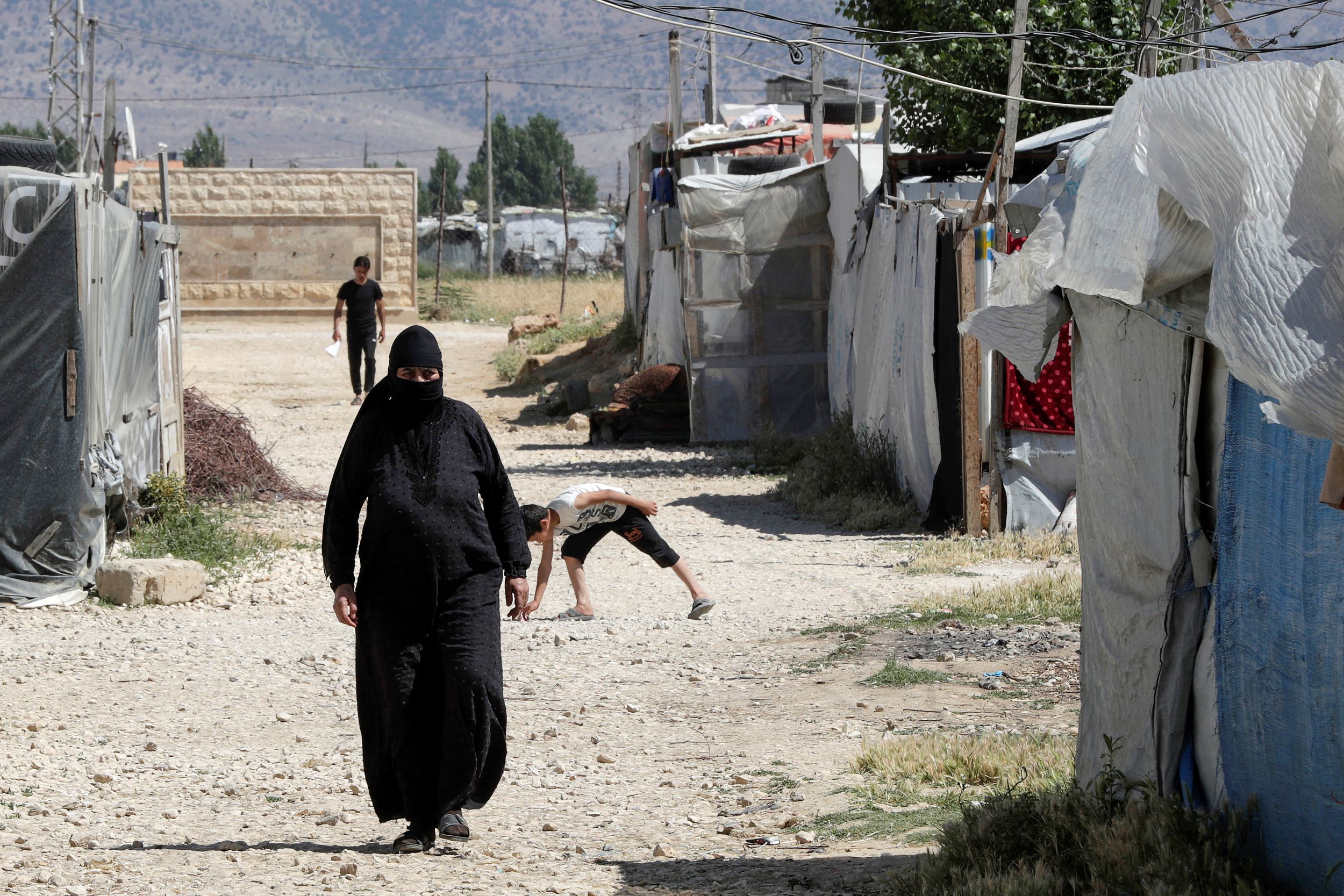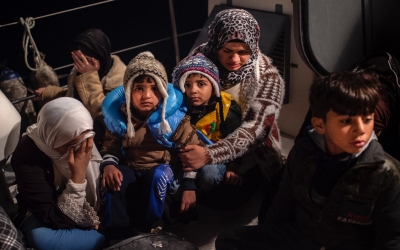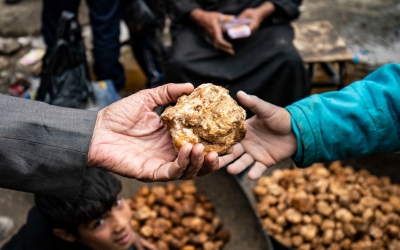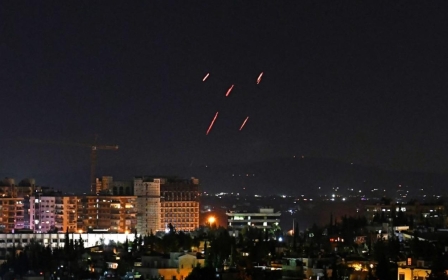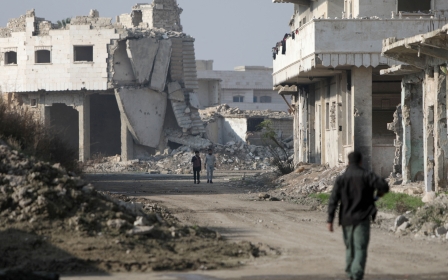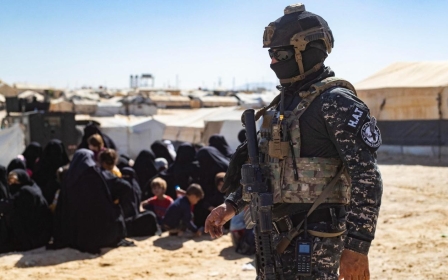Lebanon rounding up Syrian refugees for deportation regardless of legal status
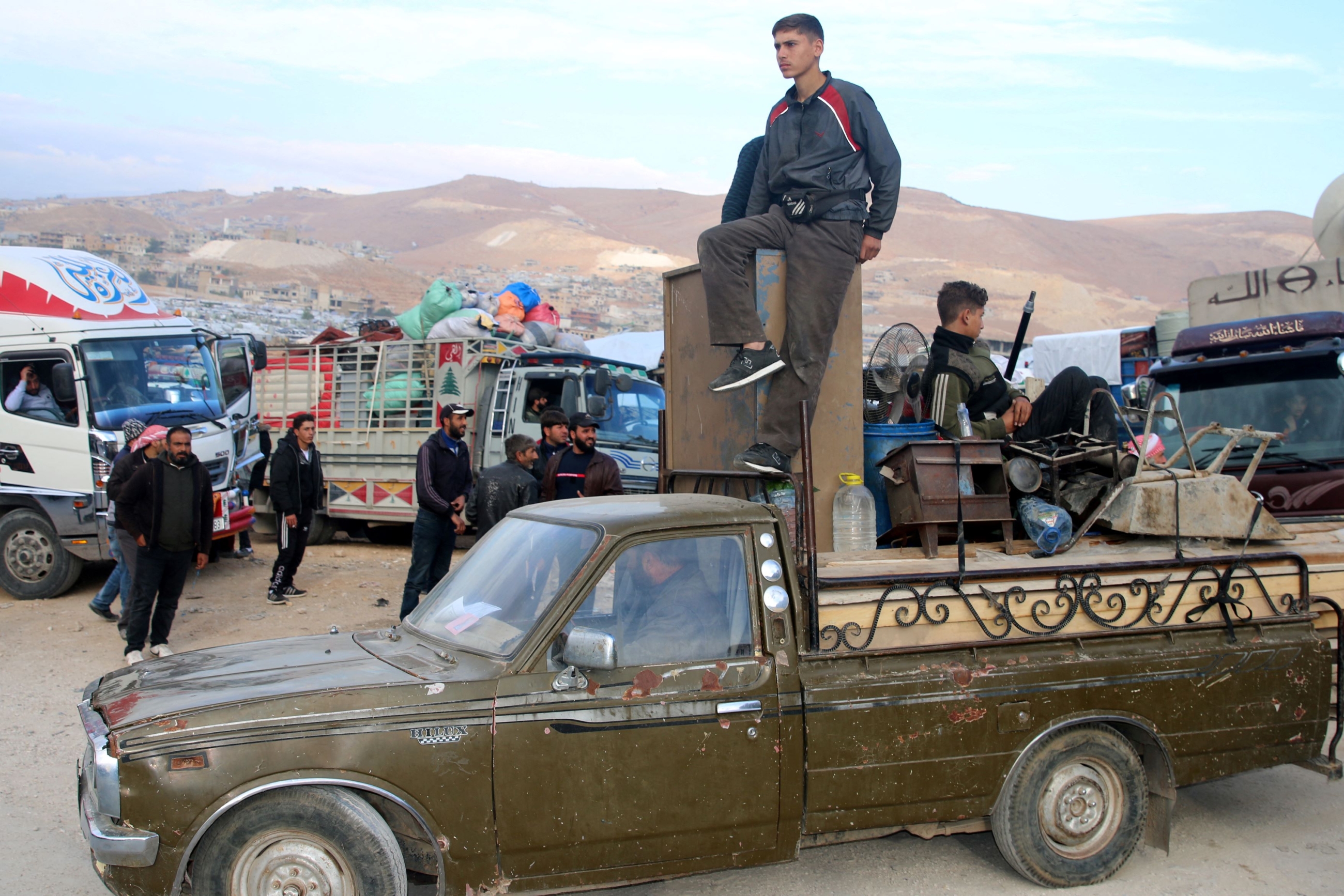
Ghassan, a 26-year-old Syrian refugee, lives a precarious and uncertain existence in Lebanon.
He and his 40-year-old brother, Ayed, had originally fled Syria in 2012 as the country began its descent into civil war.
They registered as Syrian refugees with the United Nations High Commissioner for Refugees (UNHCR), which was meant to secure their status in Lebanon.
However, on 26 April Ayed was forcibly deported by the Lebanese Army from the Qab Elias camp in Western Beqaa and handed over to Syrian forces, who conscripted him into mandatory military service against his will.
Ghassan told Middle East Eye that, on the day of Ayed's deportation to Syria, he spoke with Ayed's wife who informed him that Ayed was placed in one of the Syrian brigades of the Fourth Division near the Lebanon border.
Stay informed with MEE's newsletters
Sign up to get the latest alerts, insights and analysis, starting with Turkey Unpacked
A Syrian army officer requested $200 from her to assist Ayed in escaping.
But Ghassan had already heard this kind of story.
"When she told me that, I convinced her he was lying. My wife's father, Bushra, was arrested in 2013. Syrian authorities demanded money for his release, and my wife's family paid over $1,000, but they didn't release him," he said.
"Later, we discovered that he had been killed in Sednaya prison, with a bullet to his forehead, thanks to leaked photos from the Caesar exhibition, which revealed evidence of torture and deaths in Syria's prisons."
Without any option on how to help his brother, Ghassan posted a video on TikTok appealing to the international community.
However, he was threatened and had to seek refuge in north Lebanon, saying that there were individuals aligned with the Syrian regime who acted as informants in the camps.
"I am afraid. I do not want to lose my children and my mother because of my words. I am tired. I can no longer bear this situation for fear of deportation," he said.
MEE couldn't independently verify Ghassan's statement on the presence of informants.
Syrians expelled
In the last few months, Lebanon has intensified raids aimed at returning Syrian refugees, fuelled by increasing anti-refugee sentiment across Lebanese society.
It's estimated that Lebanon hosts about 1.5 million Syrian refugees, with about 805,000 officially registered with the UNHCR, which does not differentiate between them when providing assistance.
But despite the government's promise of returning only Syrian refugees who entered illegally, documented evidence shows that deportations include both registered and unregistered refugees.
Ayed registered with the UNHCR in 2013 but was forcibly returned to his country despite his legal status.
According to Paula Barrachina Esteban, a UNHCR spokesperson in Lebanon, at least 93 raids were confirmed between April and early May, with reports of detained and deported Syrians.
"UNHCR takes reports of deportations of Syrian refugees very seriously and is following up on this with relevant stakeholders," she said in a written email.
'The UNHCR is aware of the increasing number of summary group deportations and reports of family separation, including minors being separated from their families'
- humanitarian worker
She added that the UNHCR advocated for international law principles and refugee protection in Lebanon, including preventing refoulement, or forcible return.
The UNHCR also promotes resettlement to third countries as a solution. In 2022, around 8,300 refugees resettled from Lebanon, accounting for 40 percent of Middle East North Africa region submissions and 8 percent globally.
A humanitarian worker interviewed by MEE who preferred not to disclose his name, because he is not authorised to speak with the press, said that at least 2,137 individuals had been arrested through recent raids and at checkpoints. Additionally, 1,473 deportations from Lebanon to Syria have taken place in the last few months.
The source also revealed that although Lebanon's General Security office should carry out the operations, it's the Lebanese armed forces that are conducting them.
"The UNHCR is aware of the increasing number of summary group deportations and reports of family separation, including minors being separated from their families, and it is taking action by providing protection counselling and support to deported refugees' family members whenever possible while also raising the issue with the authorities," he said.
'I am currently terrified'
The fear of being deported is obsessively felt by Maalek, 32, who arrived in Lebanon in 2013 after being arrested in Syria during his military service.
In 2015, he reached Europe by boat and stayed in Germany for ten days, sleeping on the streets.
However, he had to return to Syria to try to release his brother Mohammad.
"Begged by my mother, I returned to Syria to free Mohammad, but to my dismay, both my father and my second brother Ammar had also been arrested," he recalled.
Maalek couldn't free his father and siblings, so he attempted to return to Lebanon with his mother. However, local authorities later deported him to his home country, where Syrian authorities arrested him for the second time.
'I am currently terrified of deportation. I just want to live in safety'
- Maalek, refugee
After being detained between October 2015 and July 2016, Syrian authorities released Maalek when they realised he had already been imprisoned in 2012.
Maalek arrived in Lebanon in 2018 and registered with the UNHCR.
However, he now lives in constant fear of deportation and potential harm because he believes his brother Ammar was killed, while his father and brother Mohammad were released.
"I told the UNHCR my story and expressed my reluctance to ever return to Syria. I am currently terrified of deportation. I just want to live in safety," he said.
Lebanon's decision to repatriate Syrian refugees on a supposedly voluntary basis in 2022 has raised concerns among international and local NGOs.
They argue that Syria is not safe for refugees to return, and Lebanon violates the principle of non-refoulment, which prohibits sending individuals back to a country where they may face torture, cruel treatment, or other forms of harm.
But now voluntary returns seem to be turning into deportations.
Fadel Fakih, executive director at the Lebanese Center for Human Rights (CLDH), told MEE that the Lebanese Army has arrested and deported refugees to Syria without judicial oversight through a process conducted informally.
"From a legal perspective, we don't see Lebanon implementing the Convention Against Torture, to which it is a signatory, and deportation can violate article three of the convention," he said.
Fakih explained that some deported refugees returned to their families unharmed, while others, like Sayed in his case, were conscripted into the Syrian army. He emphasised that there are cases where individuals have endured torture and ill-treatment.
"It depends on their situation in Syria and their financial resources regarding how much refugees can bribe authorities," he explained.
The UK-based independent monitoring group Syrian Network for Human Rights (SNHR) told MEE it documented deportations of activists and defectors pursued by Syrian security forces.
SNHR highlighted the arrest and the detention in Beirut of a former Syrian army captain, now a defector, and documented deportation orders for nine Syrian refugees detained by Lebanese General Security.
Syrian refugees in Lebanon have a few options to stay in the country and avoid deportation, even though their living conditions have worsened due to Lebanon's economic crisis and the restrictive policies against them.
Registered refugees may have relatively easier access to legal residency in Lebanon, but those not registered with UNHCR face more complications.
They may need to find sponsorship or secure employment to stay.
However, Syrian refugees in Lebanon often encounter discrimination when attempting to avoid deportation.
The anti-refugee rhetoric has created tension between communities, leading to some landlords exploiting refugees by charging inflated rents in US dollars.
Some landlords even evict refugees despite regular rent payments, and without signed contracts, refugees struggle to provide proof of their tenancy.
Additionally, unverified reports suggest that bribes may be exchanged between refugees and local authorities for the necessary documentation to remain in Lebanon.
'The streets smell of death'
Fakih told MEE that UNHCR is failing to fulfil its role in protecting refugees in the country, as they could apply more pressure on the Lebanese government.
Ghassan told MEE that he only talks to his brother when Ayed is allowed to make a call.
But Ghassan worries about his future too.
"The Syrian regime threatened me. If I am deported, I will be imprisoned in the darkness of prisons or executed," he said.
Maalek expressed fear of death in Syria and said he withheld certain details of his story from the UNHCR to prevent Syrian authorities from obtaining them.
He shared a YouTube video with MEE of the 2013 Tadamon massacre, where 40 civilians were executed in a mass grave, to show that he doesn't want to end up like them.
"The people I speak to, who live in Syria, tell me the streets smell of death," he said.
This article is available in French on Middle East Eye French edition.
Middle East Eye delivers independent and unrivalled coverage and analysis of the Middle East, North Africa and beyond. To learn more about republishing this content and the associated fees, please fill out this form. More about MEE can be found here.


